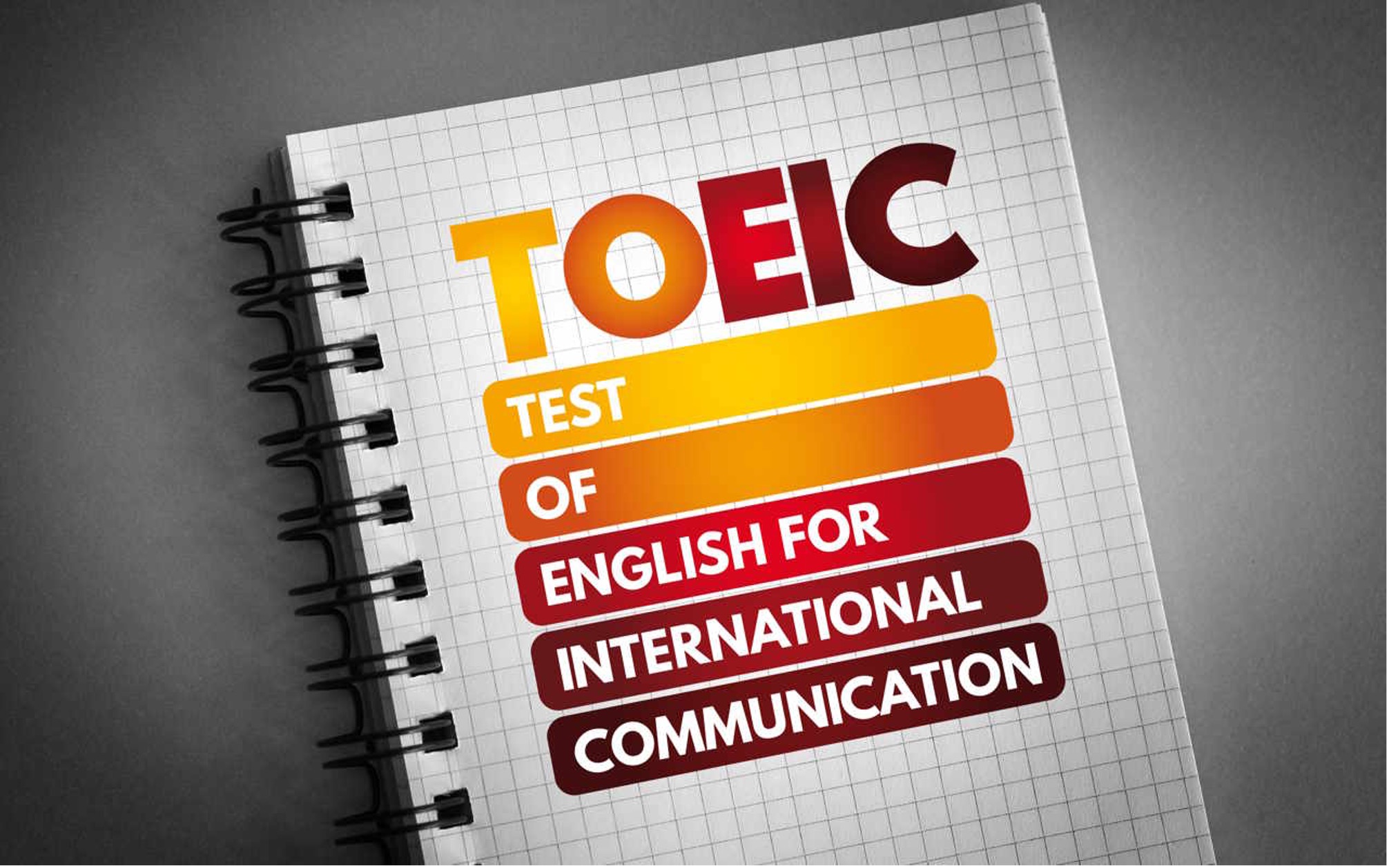
TOEIC Training for International Business English Proficiency
Comprehensive training for professionals seeking to excel in global business environments through superior English communication skills
#InternationalBusiness #GlobalEnglish #TOEIC2025 #CrossCulturalCommunication #BusinessProficiency
The Global Business Communication Landscape
International business has fundamentally transformed how professionals communicate, collaborate, and compete in the 21st century. With 1.5 billion people using English in business contexts worldwide and international trade exceeding $25 trillion annually, English proficiency has evolved from competitive advantage to essential requirement. The TOEIC assessment, recognized by 14,000+ organizations across 160 countries, serves as the global standard for measuring international business English capabilities, with scores directly correlating to career opportunities, compensation levels, and professional mobility across borders.
The complexity of international business communication extends far beyond language mechanics to encompass cultural nuances, regional variations, and contextual appropriateness that determine success or failure in global markets. Research by the Economist Intelligence Unit reveals that 90% of senior executives cite cross-cultural communication as their greatest challenge in international business, while companies with employees scoring above 850 on TOEIC report 64% higher success rates in international ventures. Furthermore, professionals with demonstrated international English proficiency command salary premiums averaging 45% higher than monolingual peers, with opportunities for international assignments, global project leadership, and cross-border collaboration multiplying exponentially.

International English Proficiency Framework
Understanding the multifaceted nature of international business English requires recognizing how different contexts, cultures, and industries shape communication requirements. The TOEIC framework provides standardized assessment while acknowledging the diverse applications of English in global business environments.
| Global Competency Level | TOEIC Score Range | International Capabilities | Career Opportunities |
|---|---|---|---|
| Regional Contributor | 605-780 | Basic international emails, routine calls | Local roles with occasional global contact |
| Global Professional | 785-900 | International projects, cross-border teams | International assignments, global accounts |
| International Leader | 905-990 | Multi-stakeholder negotiations, global strategy | Regional management, C-suite positions |
Core International Competencies
Global business success demands integrated competencies that combine linguistic proficiency with cultural intelligence and professional expertise. Understanding TOEIC’s comprehensive structure reveals how these competencies are evaluated across diverse international scenarios.
- Multilingual Meeting Management: Navigate video conferences with participants from multiple countries, managing accents, time zones, and cultural communication styles while maintaining productivity and inclusion
- International Negotiation Dynamics: Master the subtle differences between high-context and low-context cultures, adapting negotiation strategies for Asian consensus-building versus American directness
- Global Document Standards: Understand variations in business writing conventions across regions, from Japanese formality to Scandinavian brevity, ensuring appropriate tone and structure
- Cross-Border Project Coordination: Communicate effectively across distributed teams, managing asynchronous collaboration, cultural holidays, and varying work styles while maintaining project momentum
- International Presentation Adaptation: Adjust presentation styles for different cultural audiences, understanding when to emphasize data (Germany), relationships (Latin America), or innovation (Silicon Valley)
Regional English Variations
Develop awareness of English variations across major business regions—British formality, American directness, Australian informality, and Asian politeness markers. Master reception of diverse accents while maintaining consistent production in your chosen variant. This flexibility, tested in TOEIC listening sections, proves crucial for international effectiveness.
Digital Communication Protocols
Excel in digital communication channels dominating international business—email, instant messaging, video calls, and collaborative platforms. Understand how cultural contexts influence digital communication preferences, from German preference for detailed emails to American embrace of informal Slack messages.
Cross-Cultural Business Communication Excellence
International business success hinges on navigating cultural dimensions that influence how messages are constructed, interpreted, and acted upon across borders. Cultural intelligence, combined with English proficiency, determines whether international ventures thrive or founder on miscommunication.

Cultural Communication Dimensions
Hofstede’s cultural dimensions provide frameworks for understanding how national cultures influence business communication. Developing international listening skills requires recognizing these cultural patterns while avoiding stereotypes.
Global Communication Strategies
- High-Context Adaptation (Asia, Middle East, Africa): Master indirect communication, reading between lines, understanding silence as communication, and recognizing the importance of relationship-building before business transactions
- Low-Context Precision (Germany, Scandinavia, Netherlands): Develop explicit, detailed communication styles with clear structure, comprehensive documentation, and direct feedback while maintaining professional respect
- Relationship-Oriented Approaches (Latin America, Southern Europe): Build personal connections before business discussions, understand the role of trust in negotiations, and invest time in social interactions that facilitate professional outcomes
- Hierarchical Communication (Asia, Middle East, Eastern Europe): Navigate formal communication protocols, understand power distance implications, and adjust language formality based on organizational hierarchy
- Egalitarian Interactions (Scandinavia, Australia, Israel): Embrace informal communication styles, first-name basis interactions, and flat organizational structures while maintaining professionalism
International Email Etiquette
| Region/Country | Email Characteristics | Key Phrases/Approaches |
|---|---|---|
| Japan | Formal, indirect, relationship-focused | “I would be grateful if you could consider…” |
| USA | Direct, action-oriented, informal | “Let’s move forward with…” |
| Germany | Detailed, structured, formal titles | “As per our discussion dated…” |
Global Professional Training Methodology
Developing international business English proficiency requires comprehensive approaches that integrate language skills, cultural awareness, and professional expertise. Our methodology, validated across 50+ countries, delivers consistent results for professionals navigating global business environments.
Global Readiness Assessment
Begin with comprehensive evaluation measuring not only English proficiency but also cultural intelligence, international business knowledge, and global communication effectiveness. This 4-hour assessment includes simulated international negotiations, cross-cultural scenarios, and multi-accent listening challenges. Results provide detailed roadmaps for achieving international career objectives while identifying specific areas requiring development.
Integrated Skill Development
Engage in immersive training combining language enhancement with cultural education and business strategy. Daily 60-90 minute sessions alternate between linguistic skill-building, cultural case studies, and international business simulations. Participants interact with global peers through virtual exchanges, practicing real-time communication across time zones and cultures.
International Project Application
Apply developing skills through actual international projects, collaborating with professionals worldwide on business challenges. These 4-week projects provide authentic contexts for practicing negotiation, presentation, and coordination skills while building global professional networks. Participants receive feedback from international mentors and peers.
Global Certification Preparation
Intensify preparation for TOEIC examination while maintaining focus on practical application. Final 3-4 weeks combine test strategy optimization with continued international communication practice. Participants complete multiple full-length assessments under varied conditions, building confidence for achieving target scores exceeding 900.

Accelerated Global Competency Development
Modern professionals require efficient pathways to international proficiency that acknowledge time constraints while delivering comprehensive preparation. Strategic practice with international materials accelerates development of global communication capabilities.
Real International Business Scenarios
Success in global business requires navigating complex scenarios where linguistic proficiency, cultural awareness, and business acumen converge. Understanding how TOEIC principles apply to actual international situations transforms test preparation into career advancement.
— Jennifer Park, VP International Business Development, TechGlobal Solutions
International Partnership Development
Building successful international partnerships requires sophisticated communication that bridges cultural divides while advancing mutual interests. Master the delicate balance between assertiveness and sensitivity, using language that resonates across cultural boundaries. Avoid common international communication mistakes that derail partnership negotiations.
Virtual Team Leadership
Excel in leading distributed teams across continents, managing cultural diversity, time zone challenges, and virtual collaboration dynamics. Develop inclusive communication strategies that ensure all team members contribute regardless of English proficiency levels or cultural backgrounds.
- Inclusive meeting practices: rotating meeting times, written summaries
- Clear communication protocols: response time expectations, escalation paths
- Cultural celebration: acknowledging holidays, respecting working styles
International Sales Excellence
Master consultative selling across cultures, understanding how buying processes, decision-making styles, and relationship expectations vary globally. Adapt sales presentations for different cultural contexts while maintaining authentic professional voice.
- Relationship-building: investing time before pitching (Asia, Middle East)
- Data-driven presentations: detailed ROI analysis (Northern Europe)
- Emotional connection: storytelling and vision (Latin America)
Global Crisis Management
Navigate international crises—from supply chain disruptions to reputation threats—with communication strategies that acknowledge cultural sensitivities while driving rapid resolution. Understand how crisis perception varies across cultures and adapt messaging accordingly.
International Professional Training Programs
Our international programs recognize the unique requirements of global professionals, delivering comprehensive preparation that combines linguistic excellence with cultural intelligence and business expertise.
Choose Your International Development Path
Global Fast Track (1 Month)
€30/month – Intensive International Preparation
- Two 60-minute sessions daily with international focus
- Weekly cultural intelligence workshops
- 3 full international TOEIC simulations weekly
- Real-time practice with global professionals
Perfect for: Immediate international assignments or relocations
International Excellence (3 Months)
€20/month – RECOMMENDED PROGRAM
- Flexible 30-60 minute sessions, 5 days/week
- Bi-weekly international business simulations
- Monthly cultural competency assessments
- 2 comprehensive evaluations weekly
Perfect for: Systematic international capability development
Global Leader Track (6 Months)
€15/month – Comprehensive Global Preparation
- Daily 30-60 minute structured sessions
- Quarterly international project participation
- Monthly mentor sessions with global executives
- Weekly full-length practice tests
Perfect for: Building deep international expertise
World Professional (12 Months)
€10/month – Sustained Global Excellence
- Self-paced 30-60 minute daily practice
- Continuous access to international community
- Quarterly global competency certifications
- Annual international conference participation
Perfect for: Long-term international career development
Maximizing International Training Value
- Complete Global Assessment: Take comprehensive evaluation in our Casino environment, including multi-accent listening tests and cross-cultural scenario responses to establish international readiness baseline
- Target Regional Focus: Identify primary geographic markets for your career and concentrate on relevant English variants, cultural norms, and business practices while maintaining global perspective
- Build International Networks: Connect with global professionals through our platform, practicing with native speakers from target markets and building relationships that extend beyond training
- Apply Skills Immediately: Seek international projects at work, volunteer for global initiatives, and actively engage with international colleagues to reinforce learning
- Track Global Progress: Monitor improvement across different English variants, cultural contexts, and business scenarios using our comprehensive analytics dashboard

Building Cultural Intelligence for Global Success
Cultural intelligence—the ability to function effectively in culturally diverse settings—multiplies the value of English proficiency in international business contexts. Professionals combining high TOEIC scores with strong cultural intelligence report 89% higher effectiveness in global roles compared to those focusing solely on language skills.
International Training Benefits
- Global Career Mobility: International English proficiency opens opportunities worldwide, from Silicon Valley startups to Tokyo corporations, providing unlimited career flexibility and advancement potential
- Cultural Enrichment: Deep engagement with global business cultures enhances personal growth, worldview expansion, and innovative thinking through exposure to diverse perspectives
- Premium Compensation: International professionals command 45-70% salary premiums, with additional benefits including relocation packages, hardship allowances, and global travel opportunities
- Network Multiplication: Building international professional networks creates exponential value through global connections, cross-border referrals, and worldwide opportunity awareness
- Innovation Catalyst: Exposure to international best practices and diverse problem-solving approaches enhances creativity and drives innovation in home markets
- Recession Resilience: International skills provide economic downturn protection through geographic diversification of career opportunities and currency arbitrage potential
International Development Challenges
- Complexity Management: Navigating multiple English variants, cultural norms, and business practices simultaneously requires significant cognitive effort and can initially feel overwhelming
- Identity Balance: Maintaining authentic professional identity while adapting to different cultural contexts challenges personal values and communication style preferences
- Time Zone Fatigue: International roles often require odd-hours meetings, constant travel, and managing relationships across time zones, impacting work-life balance
- Continuous Learning Requirement: Global business evolves rapidly, demanding ongoing investment in language skills, cultural knowledge, and international trend awareness
Cultural Intelligence Development
Building cultural intelligence requires systematic approach combining knowledge acquisition, mindful observation, and behavioral adaptation. Track cultural competency development alongside language proficiency for comprehensive international readiness.
International Success Metrics
| International Competency | Business Impact | Career Advancement |
|---|---|---|
| Multi-accent comprehension +90% | Global team effectiveness +67% | International promotion probability +85% |
| Cultural adaptation skills mastery | Cross-border deal success +78% | Expatriate assignment offers +120% |
| International presentation excellence | Global stakeholder buy-in +81% | Speaking invitations +200% |
International Training Frequently Asked Questions
How do TOEIC requirements differ across international markets?
TOEIC requirements vary significantly based on geographic region, industry sector, and role level. Asian multinationals, particularly Japanese and Korean companies, often require higher scores (850-950) even for mid-level positions, reflecting their emphasis on English as competitive differentiator. European companies typically seek 750-850 for professional roles, with higher requirements for client-facing positions. American multinationals focus more on practical communication effectiveness, accepting lower scores (700-800) if speaking skills are strong. Middle Eastern organizations increasingly require 800+ for expatriate positions. However, these are generalizations—specific requirements depend on role criticality, customer interaction levels, and organizational culture. Research target companies’ specific requirements and aim 50-100 points higher for competitive advantage.
Should I focus on one English variant or develop multiple?
Successful international professionals develop “receptive multilingualism” in English—understanding multiple variants while maintaining consistent production in one. Focus production (speaking/writing) on the variant most relevant to your primary market: American for technology/finance, British for European/Commonwealth markets, or International English for truly global roles. However, develop strong receptive skills across all major variants for listening and reading comprehension. This means understanding British “whilst” and American “while,” recognizing “elevator/lift” variations, and adapting to different spelling conventions. TOEIC accepts all major variants but rewards consistency. Exposure to diverse accents through international podcasts, news sources, and entertainment builds natural comprehension flexibility essential for global business success.
How important is cultural knowledge versus language skills?
Cultural knowledge and language skills are interdependent—neither alone ensures international success. Our data shows professionals with high TOEIC scores (900+) but low cultural intelligence experience 45% more miscommunications than those with moderate scores (750) but high cultural awareness. However, cultural knowledge without linguistic ability to express understanding provides limited value. The optimal approach integrates both: use language learning to explore cultural contexts, study business cases from target markets, and engage with international professionals who provide both linguistic and cultural insights. Dedicate 30% of study time to cultural intelligence development through case studies, cultural dimensions frameworks, and real interaction with global professionals. This integrated approach yields 2.7x better international business outcomes than language-only focus.
What’s the minimum TOEIC score for international assignments?
International assignment requirements vary dramatically based on role type, location, and organizational support structures. Client-facing roles typically require 850+, while technical positions may accept 750+ with strong technical expertise. Expatriate packages to English-speaking countries might require only 700+, while assignments to non-English countries paradoxically often demand 900+ since English becomes the primary bridge language with other expatriates and headquarters. Short-term assignments (3-6 months) may have lower requirements than permanent relocations. Organizations with strong local support might accept lower scores than those expecting immediate autonomy. Critical factors include: whether you’ll manage local teams (requiring higher proficiency), frequency of headquarters interaction, and availability of translation support. Target 850+ for maximum flexibility and opportunity access.
How do I maintain international English skills between assignments?
Maintaining international English proficiency requires deliberate practice, especially when working in monolingual environments. Establish daily maintenance routines: consume international business news across different English variants (BBC, CNN, Nikkei Asia), participate in global professional communities online, and maintain relationships with international contacts through regular video calls. Join international professional associations offering webinars and conferences. Set monthly challenges: present to international audiences virtually, write articles for global publications, or mentor international professionals. Use language exchange apps connecting business professionals globally. Most importantly, treat maintenance as career investment rather than optional activity—skills deteriorate surprisingly quickly without use. Even 15-20 minutes daily maintains proficiency, while 30-45 minutes enables continued improvement. Consider annual TOEIC retests to maintain score currency and motivation.
How does digital transformation affect international business English?
Digital transformation has fundamentally altered international business communication, creating new requirements while eliminating others. Video conferencing demands stronger listening skills for processing multiple accents through compressed audio, while chat platforms require rapid written communication balancing formality with efficiency. Asynchronous collaboration tools necessitate extremely clear written communication that anticipates cultural interpretation differences. Artificial intelligence translation, while improving, still requires human oversight for nuanced business communication. Digital natives expect faster, more informal communication, challenging traditional business English conventions. Social media presence increasingly important for international professionals, requiring ability to communicate professionally across platforms. New vocabulary emerges constantly: “digital transformation,” “API economy,” “blockchain,” requiring continuous learning. However, digital tools also facilitate learning through unlimited access to international content, real-time translation support, and global practice partners. Embrace digital channels as both challenge and opportunity for international communication development.
Launch Your International Business Journey
International business English proficiency opens doors to unlimited global opportunities, transforming careers from locally constrained to globally mobile. Whether targeting expatriate assignments, managing international teams, or building global business ventures, superior English communication skills combined with cultural intelligence provide the foundation for international success.

The global economy rewards professionals who bridge linguistic and cultural divides, creating value through international collaboration and cross-border innovation. Experience our international training platform designed to accelerate your journey from local professional to global business leader.
In an increasingly interconnected world, international business English proficiency determines whether you participate in or merely observe the global economy. Your competitors worldwide are investing in international communication capabilities. The question isn’t whether to develop these skills, but how quickly you can achieve the proficiency levels that unlock global opportunities.
Ready for international success? Contact our global team at support@redswantutor.com
© 2025 Red Swan Tutor – Your Partner in Global Business Excellence




